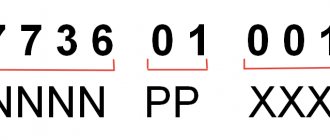Who is a private entrepreneur
A private entrepreneur is an individual who, without legal education, carries out entrepreneurial activities. Private businessmen in Russia appeared at the dawn of entrepreneurship in the early 90s of the 20th century. At first they began to be called state of emergency, but in the mid-90s the abbreviation PBOYUL (entrepreneur without the formation of a legal entity) began to be used in official documents.
Today, not a single current legal act contains the concept of “private entrepreneur”. Instead of this term, there is now the concept of an individual entrepreneur, so in the article we will talk about an individual entrepreneur.
Features of the work of individual entrepreneurs
An individual entrepreneur is, in fact, an individual who carries out business activities at his own risk in order to make a profit. But unlike an ordinary citizen or organization (legal entity), the work activity of an individual entrepreneur has its own nuances and characteristics.
The legal status of an entrepreneur allows him to carry out commercial activities without creating a legal entity. Any capable citizen who is not in state or municipal service can register as an individual entrepreneur. Registration takes place at the tax authority at the place of registration of the person.
The peculiarities of the work of individual entrepreneurs are reflected in the dual position of an individual entrepreneur - he can act as both an employee and an employer. The difference from an ordinary citizen is the ability of an entrepreneur to act as an employer by hiring employees. An employment contract is concluded with the hired individual or other individual entrepreneur. It makes sense to conclude a civil law contract if an employee is hired for a certain period or performs one-time work. After this, we register as an employer with the Pension Fund, Social Insurance Fund and Territorial Medical Insurance Fund. Thus, the payment of contributions and taxes from now on will be carried out by the individual entrepreneur for himself and an employee or several employees.
When applying for a job in an organization or another individual entrepreneur, the entrepreneur acts as a hired employee, who is an individual. In this situation, an organization, individual entrepreneur or enterprise that has hired an employee with individual entrepreneur status will deduct taxes and fees for him, and the entrepreneur himself will deduct them from his activities. Upon admission, a mandatory entry is made in the work book, and an agreement is concluded in accordance with the Labor Code. Thus, when getting a job, an individual entrepreneur has the same rights and responsibilities as all individuals.
There are also certain features of the work of individual entrepreneurs related to taxation. Individual entrepreneurs have the right to switch to a simplified system voluntarily and at their own request, while the transition to this system for organizations and entrepreneurs in certain industries (insurance, banking, pawnshops) is legally limited. Entrepreneurs on the simplified tax system are exempt from paying income, property and value added taxes. Thus, the individual entrepreneur has the right to choose the taxation system at his own discretion.
Some features of the work of individual entrepreneurs are related to tax audits. Such inspections are carried out by authorized tax officials, who must present an inspection document certified with a seal and signature. The audit can be rescheduled only in the absence of an individual entrepreneur or accountant, which is confirmed by sick leave, a vacation or business trip order. In this case, the inspection will be carried out on another day.
Financing of the activities of individual entrepreneurship is carried out from both internal and external sources. Internal is the personal profit of the individual entrepreneur used in business. External – bank loans, loans, funds from various funds. Opening a business as an individual entrepreneur does not require authorized capital. An individual entrepreneur has the right to spend his profit independently, reporting its amount only to tax authorities.
In conclusion, I would like to note that state support for individual entrepreneurs also plays an important role in the work of individual entrepreneurs. Every year the state allocates at least 5% of the annual budget to support entrepreneurs. After all, it is small enterprises, which are individual entrepreneurs, who create a favorable competitive environment, saturate the market with goods, open new jobs, provide employment to the population, and use more local resources and materials.
Useful articles:
The procedure for carrying out activities by an individual entrepreneur Dividends of an individual entrepreneur, what are the benefits Hiring workers by an individual entrepreneur under a contract
Share
Areas of business activity
A person without legal education may, without special permission, engage in activities in the following areas:
- consulting and legal services;
- domestic services;
- printing and publishing activities;
- entertainment sector, event organization;
- creative work (design, photography, painting, etc.);
- wholesale;
- Rental Property;
- transport transportation (category B);
- advertising.
Some activities require licensing , for example, educational activities, private investigation, passenger transportation, drug production and medical activities. In total there are about 50 types of activities on this list.
There are also types of activities that do not require a license, but they require permission and approval from regulatory authorities. For example, retail trade, beauty salon services.
Another section is activities prohibited for individual entrepreneurs . An entrepreneur cannot sell alcohol or sell military weapons. This also includes activities prohibited by law, such as drug trafficking.
Pros and cons of individual entrepreneurs as a form of business activity
Like any type of activity, registration as an individual entrepreneur has its positive and negative sides.
pros
- Easy to register as an individual entrepreneur . So, for registration you must provide a photocopy and original passport, an application for registration and a receipt for payment of the state fee.
- Lack of mandatory revenue reporting . Unlike the owner of an LLC, an individual entrepreneur is not required to maintain a pile of documentation. A thin barn book is enough.
- Freedom from tax on property used in business activities.
- Smaller taxes compared to other forms of organizing activities.
- Less amount of fines . By analogy with taxes, in case of violation, an individual entrepreneur pays a smaller fine than the owner of an LLC.
- The tax office checks less often , as the statistics show.
- Easy to close . If desired, the individual entrepreneur can be closed within a few days. Read about how to close an individual entrepreneur here.
- There is no need to register a legal address . When registering, the registration address of the individual himself is indicated.
- Sole ownership of income . The entrepreneur can use the money earned, minus taxes, for his personal purposes.
The activities of an individual entrepreneur are included in the length of service, which ultimately affects the amount of the pension.
Minuses
IP has a number of its own disadvantages, which include:
- Impossibility of selling or buying individual entrepreneurs . This is due to the fact that in fact an individual entrepreneur is, in fact, an individual.
- An individual entrepreneur is liable for his obligations with property . That is, in the event of loan debts or unprofitable business, you will have to cover losses caused to third parties - banks, counterparties - from your own pocket. Otherwise, the court has the right to force you to sell part of the property to pay off debts.
- Prohibition on certain types of activities . An individual entrepreneur does not have the right to sell alcoholic beverages, open banks, etc. In addition, when conducting activities that require a license, the individual entrepreneur may be fined or even liquidated.
- Mistrust on the part of legal entities. Legal entities do not always strive to enter into agreements with individual entrepreneurs. This is often due to the peculiarities of taxation.
- Fixed contributions to the Pension Fund regardless of the presence or absence of activity. Even if you have not made a profit for several months, you will have to pay taxes.
- It is not possible to have multiple co-founders at the registration level. You can register an individual entrepreneur only for one person.
- An individual entrepreneur must manage the business independently ; he cannot have deputies or general directors. Only the individual entrepreneur has the right to sign. Even in the event of a serious illness, he will have to make a decision.
How to register an individual entrepreneur
If you decide to open your own business and have initial capital, you need to officially legitimize your desires. Registering an individual entrepreneur is very simple. You just need to contact the Federal Tax Service with the following list of documents:
- application for registration of individual entrepreneurs (fill out the application in form P21001 and have it certified by a notary);
- TIN + photocopy;
- passport + photocopy;
- receipts for payment of state fees;
- notification for the use of a special regime - simplified tax system, PSN or UTII (if you do not plan to work for OSNO).
An individual entrepreneur can choose different tax regimes, having thought through and calculated their profitability in advance. Here we told you how to choose between the simplified tax system and the UTII, and in this article we figured out what is more profitable - a patent or a simplified one.
The tax office will issue you a certificate of state registration of an entrepreneur indicating the OGRNIP number, a document for assigning a TIN (if the citizen has not yet received it), and an extract from the Unified State Register of Individual Entrepreneurs. The tax office independently sends information about the registration of individual entrepreneurs to the Pension Fund and the Compulsory Medical Insurance Fund.
The registration period for an individual entrepreneur is 6 working days. The state has the right to refuse to register you as an individual entrepreneur for the following reasons:
- you are subject to restrictions on business activities (for example, you are in the civil service or work as a magistrate);
- typos were found in documents;
- you were declared bankrupt, and less than a year has passed since that moment.
Signs of legality of an individual entrepreneur
- Availability of legal capacity;
- Possession of legal capacity;
- Availability of registration at the place of residence;
Note 1
Any citizen who plans to create a company must be legally capable, have legal capacity and be registered at the place of residence. There are conditions in which a person cannot make responsible decisions and determine his own destiny. Such a person cannot be an entrepreneur. Registration is also a requirement.
Finished works on a similar topic
- Coursework Signs of an individual entrepreneur 480 rub.
- Abstract Signs of an individual entrepreneur 260 rub.
- Test work Signs of an individual entrepreneur 210 rub.
Receive completed work or specialist advice on your educational project Find out the cost
Let's consider the legal rights of individual entrepreneurs.
Rights and obligations of an individual entrepreneur
The individual entrepreneur enjoys the following rights:
- manages his own activities;
- freely chooses partners;
- decides how and in what amount to pay wages to employees;
- disposes of the received profit at its own discretion;
- can act in court as both a plaintiff and a defendant.
Responsibilities of the entrepreneur:
- document monetary transactions;
- all employees hired must be officially registered;
- submit tax and employee reports;
- pay taxes, employee salaries and insurance premiums on time.
How to open (or close) an individual entrepreneur
Registration of individual entrepreneurs, like any bureaucratic procedure, requires clear and consistent actions. Therefore, we will provide step-by-step instructions on how to register an individual entrepreneur yourself.
Where and how can you register an individual entrepreneur?
Decide how you will submit documents to open an individual entrepreneur:
- Personally visiting the Federal Tax Service Inspectorate (IFTS). You can determine the Federal Tax Service Inspectorate you need (supervising the area where you are registered or live) on the official website of the Federal Tax Service using this link;
- By submitting a package of documents to the Federal Tax Service through an authorized representative . In this case, your representative will need a power of attorney and his passport;
- By visiting in person (or through a proxy) the multifunctional center (MFC) “My Documents”. You can find the center closest to you by following this link;
- By sending the package Post . The shipment must be issued with a declared value and a list of enclosed documents;
- By sending documents for registration through the official website of the Federal Tax Service using the link. Important: for registration to be successful, you must have an electronic key (certified signature). It can be obtained upon registration on the State Services service;
- By submitting documents for an application for registration (in this option, only your application for registration will be registered, but the individual entrepreneur will not be registered). This can also be done through the official website of the Federal Tax Service.
You need to receive the completed IP certificate in the same manner as the transfer was made (if by mail, then you will receive the certificate by mail, if in person, you will have to visit the institution again).
For reference: closing an individual entrepreneur is carried out in the same way as opening it. Only the application must be filled out using a different form. Important: The Federal Tax Service will not close an individual entrepreneur if tax debts are not repaid. Therefore, before filing for termination, taxes must be calculated and paid.
What you need to have to open an individual entrepreneur
Collect a package of documents (about them in the next subsection of the article). Make photocopies if you submit documents in person or by mail. Scan if you transfer the package through the official website of the Federal Tax Service in electronic document management format.
Important: when submitting documents by mail, your signature on the application and a copy of your civil passport must be certified by a notary . When submitting electronic documents, the procedure must be certified by your electronic certified signature.
Receiving completed registration documents
If the submission was made to the Federal Tax Service, then you will be registered as an individual entrepreneur within 3 days. If documents were submitted by mail, then 5–7 days must be added to the deadline.
Evidence that you are registered as an individual entrepreneur is an extract from the Unified State Register of Individual Entrepreneurs (USRIP).
What fees must an individual entrepreneur pay?
In addition to the fact that an entrepreneur is obliged to pay taxes in accordance with the chosen taxation system, he must also make contributions to compulsory pension insurance ( OPS ) and compulsory health insurance ( CHI ).
The pension system of our state assumes that every citizen who works and receives income is obliged to transfer a certain part of it to the Pension Fund of Russia (PFR) . IP is no exception.
Until 2020, the collection of pension contributions was carried out directly by the Pension Fund, but now these functions are performed by the tax service.
Important: an individual entrepreneur is required to transfer contributions to the Pension Fund of the Russian Federation even if he does not conduct business activities (provided that the individual entrepreneur is not officially closed).
Exceptions to this rule:
- military service;
- child care up to 1.5 years;
- caring for a disabled child, a disabled person of group 1, a relative over 80 years old;
- moving with a military spouse to an area where there is no opportunity for employment in the types of activities declared by the individual entrepreneur;
- moving with a spouse abroad of the Russian Federation on an official basis.
Let's analyze in the summary table the amount an individual entrepreneur is required to contribute funds to compulsory health insurance and compulsory medical insurance :
| Years of activity | Mandatory pension insurance (per year) | Compulsory health insurance (per year) | |
| 2018 | income for the year | 26545 rub. | 5840 rub. |
| annual income > 300 thousand rubles. | 26454 + 1% of the amount over 300 thousand rubles. | ||
| note: deductions should not exceed 212,360 rubles. | |||
| 2019 | income for the year | RUB 29,354 | 6884 rub. |
| annual income > 300 thousand rubles. | 29354 + 1% of the amount over 300 thousand rubles. | ||
| note: deductions should not exceed 234,832 rubles. | |||
| 2020 | income for the year | RUB 32,448 | 8426 rub. |
| annual income > 300 thousand rubles. | 32448 + 1% of the amount over 300 thousand rubles. | ||
| note: deductions should not exceed RUB 259,584. | |||
If the individual entrepreneur did not begin his activities from the beginning of the year , then contributions are calculated in proportion to the period worked. For example, an entrepreneur registered with the tax office on February 1, 2019, which means he must transfer for 2019:
- for pension insurance (provided that the annual income did not exceed 300 thousand rubles): 29354 (rubles of annual contribution) / 365 (days in 2019) x (365 (days per year) – 31 (days in January)) = 80.42 (contribution rub. / day) x 334 (days) = 26860.28 (rubles);
- for medical insurance: 6884 (RUB annual premium) / 365 (days) x 334 (days) = 6299.33 (RUB).
Entrepreneurs are required to calculate and transfer compulsory insurance premiums independently within the following periods :
- if annual income
- if the income for the year is > 300 thousand rubles, then no later than July 1 of the year following the reporting year;
- if the individual entrepreneur is officially closed, then no later than 15 days from the date of deregistration with the Federal Tax Service.
How to open a current account
First of all, it should be noted that an individual entrepreneur can work both in cash and by non-cash transfers (via a bank account). The only “but”: in accordance with Russian legislation, there is a limit for cash payments - this is 100 thousand rubles.
Conclusion: if your business does not involve handling amounts of more than 100 thousand rubles per month, then there is no need to open a current account.
For those who believe that a bank account is necessary, here are brief instructions for opening:
- Select a bank to open an individual entrepreneur account (follow the link provided you will find my thoughts on this matter). When choosing, be guided by the reliability of the banking organization, the amount of monthly account maintenance, the convenience of the branch location, and whether the bank has insurance for deposit accounts;
- collect documents : civil passport,
- application for opening an account (the application form will be provided by the bank),
- record sheet from the Unified State Register of Individual Entrepreneurs,
- licenses (if the activities of your individual entrepreneur must be licensed).
As a rule, the bank opens an account after verifying the submitted documents (this takes about 5 days).
Who can work as an individual entrepreneur?
Individual entrepreneurs in Russia can become:
- Persons over 18 years of age.
- Persons over 16 years of age, with the permission of parents or guardians.
- Foreign citizens living in the Russian Federation.
Municipal employees and civil servants are prohibited from carrying out this type of activity.










